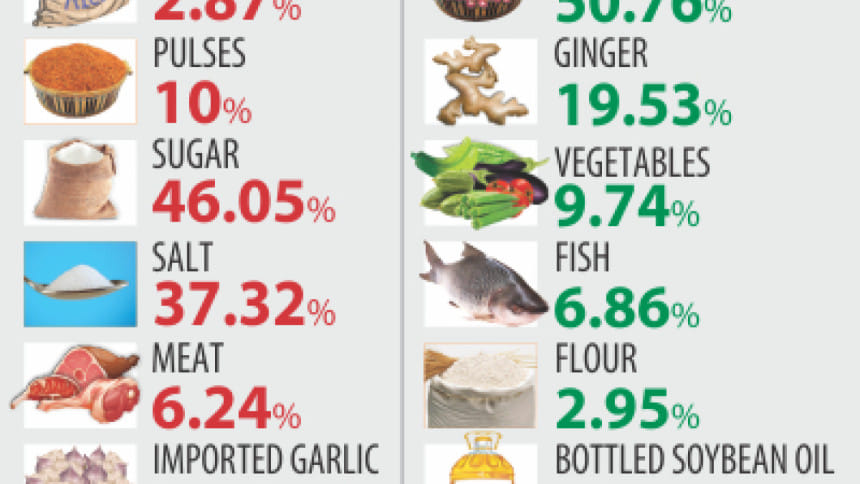Living costs rise 6.47pc

The cost of living in Bangladesh rose 6.47 percent in 2016 from the previous year due to hikes in house rents and some essential food items including rice, pulses and sugar, a consumer rights campaigner said yesterday.
The Consumers Association of Bangladesh or CAB also found that the prices of food and services rose 5.81 percent in the just concluded year.
The CAB prepared the report taking into account the costs of 114 food items, 22 essential commodities and 14 utility services. The increase in the living cost however did not take into consideration the real expenditure for education, health and transport.
The increase in 2016 is 0.09 percentage points higher than in 2015, when the cost of living rose 6.38 percent.
The prices of all varieties of rice increased 2.87 percent on average, while the prices of all kinds of pulses soared 10 percent on average.
“Though the rice price remained almost static, it was soaring during the last quarter of the year both in wholesale and retail markets,” the report said, adding that the price of coarse rice, which is consumed by low-income people, recorded the highest increase.
The prices of imported garlic soared 72.06 percent -- the most in 2016. The prices of locally produced garlic, an essential cooking ingredient, rose 47 percent.
The prices of sugar, salt, tea, milk and meat went up between 6 percent and 46 percent last year.
However, the CAB said the prices of onion, coriander, green chilli, ginger, powdered milk, vegetables, soap, fish, flour and edible oil came down between 2 percent and 51 percent in 2016.
House rent in the capital rose 8.77 percent on average in last year.
However, the low-income group was the worst sufferer as their house rent crept up 9.6 percent, with slum-dwellers not far behind. The slum-dwellers saw an 8.97 percent hike in house rents.
People living in flats faced an average hike of 8.54 percent. “In most cases, the hike in house rents did not match with the rise in city dwellers' income,” the CAB report said, while urging the government to revise the house rent law of 1991.
The consumer rights campaigner called upon the government to arrange low-cost funds for home buyers.
The government did not increase the prices of electricity and gas; rather, it cut the fuel prices by 5.58 percent in 2016.
“But the fuel price cuts were not in step with the international market prices,” the CAB said, while requesting the government to reduce the prices again as well as keep electricity and gas prices unchanged.
The price of water supplied by Wasa however shot up 22 percent in two phases without any logic. The CAB requested the government to reverse the decisions.
While there was no improvement in the public transport system in Dhaka, the traffic jam situation declined in 2016, the report said.
The cost of medical treatment was high in 2016 even though the health service sector expanded in recent years.
The consumer rights group urged the government not to impose any duty or VAT on essential commodities, to take steps for implementing the consumer rights protection act, competition law, food safety act and formalin control act immediately.

 For all latest news, follow The Daily Star's Google News channel.
For all latest news, follow The Daily Star's Google News channel. 



Comments